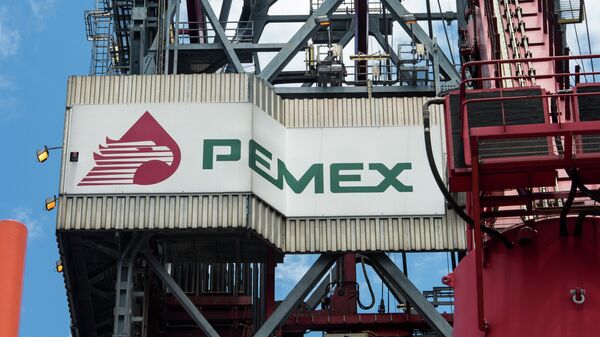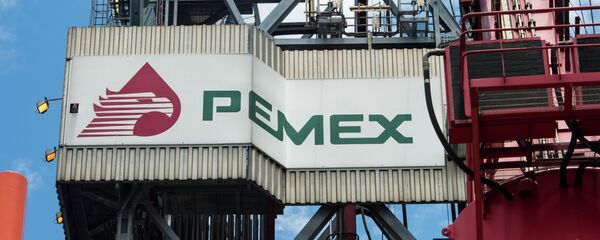"The lower production in Venezuela helps us with the price of the Mexican mix, because it [the oil] is also pretty much heavy in both countries. What we are looking is the gap between the WTI [West Texas Intermediate] and the Mexican [export] mix is getting a little bit shorter, so it helps us a lot," Trevino said, asked if PEMEX was interested in taking Venezuela’s place in exporting oil to the United States.
He pointed out that the increase in oil production would take some time.
"I don’t think we can react in a very fast way in a short term to supply more oil into the market. This decision takes some time, of course this new condition of the market helped us and motivated us to invest more, because now we have more space as Venezuelan oil companies are not producing as they used to. It’s a shame a reason [for that], but we can get some positive outcome from this condition" Trevino said.
READ MORE: Russia, Venezuela Mull Using Petro Cryptocurrency in International Transactions
Venezuela, which has one of the largest oil reserves in the world, has been mired in a deep economic crisis caused by the fall of oil prices among other issues. The economic difficulties of the Latin American nation have been accompanied by a political crisis.
Energy Reform
Trevino has expressed his views on Mexico's leading presidential candidate Andres Manuel Lopez Obrador's plan for energy reform in the country.
"What this candidate is saying — that he wants to freeze prices, build more refineries, keep their general services on their own, instead of hiring a company that has all this specialization doing whatever it is, hydrogen production, energy, etc. It is not a rational way of thinking, it’s more a political way of saying things," Trevino stated.
A presidential election campaign is currently ongoing in Mexico, with the vote set to be held on July 1. During the campaign, several economic advisers to leading presidential candidate Andres Manuel Lopez Obrador pledged that the country's ongoing energy reform and all the contracts concluded as part of it will be reviewed if Obrador is elected.
Trevino added that no other international company was seeking to do every process in the supply chain independently.
Mexico launched its energy reform in 2013, allowing private investments into the sector for the first time in 80 years. Within the framework of the reform, Pemex and the Federal Electricity Commission (CFE) were allowed to sign contracts with private companies.
Quest for Partnership
In January the Mexican National Hydrocarbons Commission announced a tender for 37 onshore oil and natural gas development areas to be held on July 25, 2018, so PEMEX is currently searching for international partners for the issue.
"That round is going to be in non-conventional blocks, so of course we want to participate in that area. We want to do it as most as we can with partners, trying to bid with partners, because we do not have our main experience in those kind of fields, in non-conventionals," Trevino said, adding that the company would be relying on partner companies mainly for their experience in the development non-conventionals in deep waters. However, it was still unclear on how many blocks the company would be bidding.



